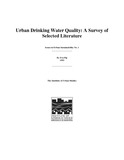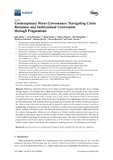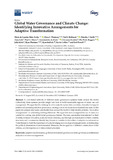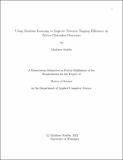Urban drinking water quality : a survey of selected literature
| dc.contributor.author | Pip, Eva | |
| dc.date.accessioned | 2015-08-11T20:36:32Z | |
| dc.date.available | 2015-08-11T20:36:32Z | |
| dc.date.issued | 1993-01-01 | |
| dc.identifier.isbn | 0-920213-98-7 | |
| dc.identifier.uri | http://hdl.handle.net/10680/878 | |
| dc.description | Book: iv, 73 p., digital file | en_US |
| dc.description.abstract | Water is indispensable for all life on our planet. The quantity of water on earth is finite, amounting to approximately 1500 million cubic kilometres (Morrison, 1984). It is one of the most precious resources that we have, but also one of the most vulnerable and easily tainted. Our present management of it will determine in large part our future as well as the future of our planet. Throughout human history, settlements have always been located near water. At first, community requirements for water, as well as impacts of human activities on water, were minimal. As social organization and technological capabilities grew, so did both the demand on and the abuse of water. The concentration of people in urban centres throughout the world brings with it today the demand for a safe, dependable, continuous supply of water, not only for individual personal needs, but also for industrial purposes and community uses such as street washing and fire control. The continued growth of the world's human population is unavoidably tied to projected demands for more and more water, yet many cities already find it difficult to meet existing requirements. | en_US |
| dc.language.iso | en | en_US |
| dc.publisher | Institute of Urban Studies | en_US |
| dc.relation.ispartofseries | Issues in Urban Sustainability;1 | |
| dc.rights | info:eu-repo/semantics/openAccess | |
| dc.subject | Drinking water -- Canada. | en_US |
| dc.subject | Water quality management -- Canada. | en_US |
| dc.subject | Municipal water supply -- Canada. | en_US |
| dc.subject | Drinking water -- Standards. | en_US |
| dc.title | Urban drinking water quality : a survey of selected literature | en_US |
| dc.type | Book | en_US |




